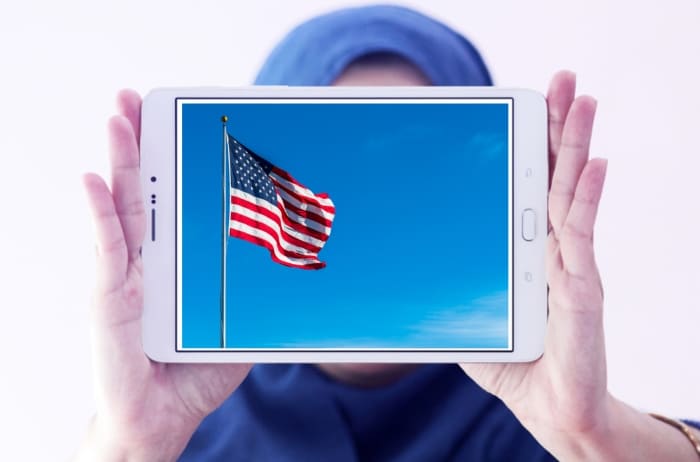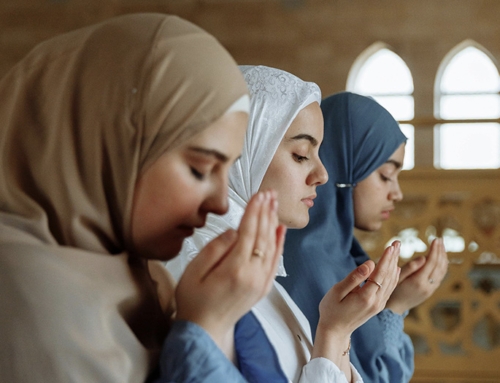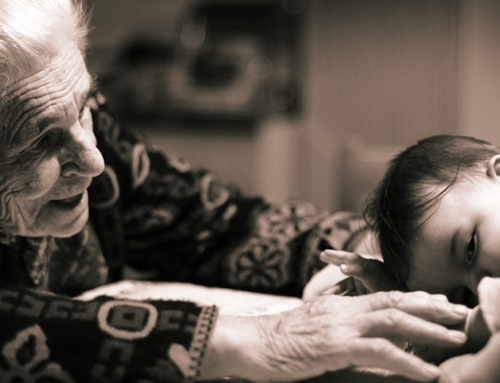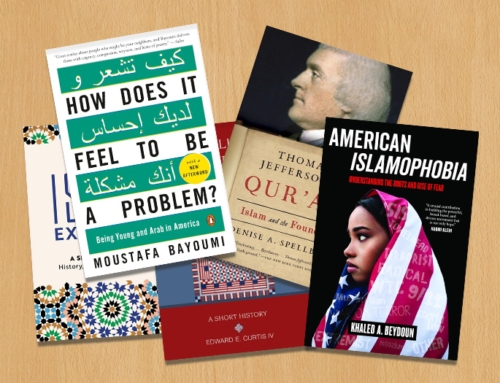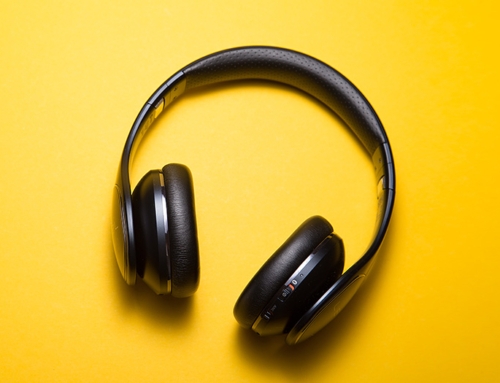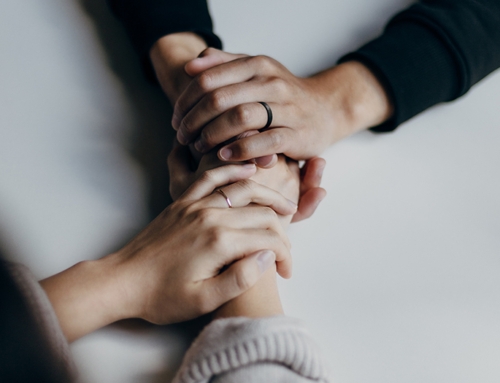By: Laura El Alam
The Challenges of Converting to Islam in The US
For converts in the United States, one of the most challenging aspects of embracing Islam is that people sometimes accuse us of being “less American” when we adopt an Islamic lifestyle. Over the past 23 years since I converted, I have heard comments like, “You don’t dress like an American anymore.” “Why don’t you celebrate American holidays?” and “It seems like you’ve turned your back on your culture.”
What is a ” True American?”
People who label me and other Muslims as “un-American” have an ingrained idea of what a “true American” looks like, dresses like, celebrates, and eats. Their prototype is a white Christian, and this bias exists mostly because our educational system has always focused on white Christians as the protagonists and rightful owners of our nation’s history. According to historian Sam Haselby:
The writing of American history has also been dominated by Puritan institutions. . . . when it comes to the history of religion in America, the consequences of the domination of the leading Puritan institutions in Boston (Harvard University) and New Haven (Yale University) remain formidable.1
Haselby Adds:
The virtual Anglo-Protestant monopoly over the history of religion in America has obscured the half-a-millennium presence of Muslims in America and has made it harder to see clear answers to important questions about who belongs, who is American, by what criteria, and who gets to decide.2
The Forgotten Muslims of America
In other words, our history books and educational institutions have systematically ignored the presence and influence of Muslims and others while putting Christians center-stage. As a result, when most people think of the first Americans, they picture the Pilgrims from England. They conveniently forget –or deliberately obscure–the indigenous peoples who had inhabited this land for millennia before the first white settlers arrived. They also exclude the Muslims who had already settled here at least 100 years before the Europeans. Haselby writes:
Muslims thus arrived in America more than a century before the Virginia Company founded the Jamestown colony in 1607. Muslims came to America more than a century before the Puritans founded the Massachusetts Bay Colony in 1630. Muslims were living in America not only before Protestants, but before Protestantism existed. After Catholicism, Islam was the second monotheistic religion in the Americas.3
Enslaved Muslims
It is crucial to remember that in addition to the Muslims who traveled to the New World as voluntary seafarers and explorers, tens of thousands were brought to the Americas against their will, in the dreadful bowels of slave ships. “Estimates vary, but [Muslims] were at least 900,000 out of the 12.5 million Africans taken to the Americas. Among the 400,000 Africans who spent their lives enslaved in the United States, tens of thousands were Muslims.”4
Enslaved Muslims Challenged White Stereotypes
Enslaved Muslims often did not fit the stereotype that white people, wishing to justify their cruelty and soothe their consciences, chose to impose on Black people. Historian Dr. Sylviane Diouf writes:
To be sure, the stereotype of Africans as uncivilised idolaters used as justification for their enslavement did not align with literate, monotheist people. Therefore, Muslims were often misrepresented as Arabs, Moors, and “descendants of the Arabian Mahomedans who migrated to Western Africa.”5
Muslim Contribution to American Culture
Though they were oppressed and abused in the most horrible ways, enslaved Muslims persevered and made our country richer in its diversity and culture. Their bloodlines and influence endure to this day. For instance, Diouf writes:
. . . a significant Muslim contribution, the blues, has been acknowledged by major musicologists since the 1970s. The roots of the blues can be found in the field holler – a solo, non-instrumental, slow tune with elongated words, pauses, and melisma, all constitutive elements of the Islamic style of singing and reciting. What musicologists did not recognise, however, is that the holler was a direct product not of the Muslims’ memories, but of Islamic practices that endured in the U.S. such as prayers, the recitation of the Quran, Sufi chants, and the adhan, the call to prayer.6
Not a Christian Nation
While it is true that Christianity is currently the most prevalent religion in the United States, we are not a Christian nation. Our government, from its very beginning, was founded with a deliberate separation between religion and state. The Founding Fathers, though Christians themselves, made the government’s religious neutrality explicit. The first clause in the Bill of Rights states that “Congress shall make no law respecting an establishment of religion.” This means our government is prohibited from establishing an official religion, or favoring one religion over another. In addition, the Civil Rights Act of 1964 prohibits employers from discriminating on the basis of religion.
These rights are unique and invaluable. Not every nation provides the same safety, and in fact many countries persecute citizens who openly practice their faith. All American citizens should be grateful for our government’s founding principle of freedom of religion.
A Growing Population
While we make up a minority now, the Muslim population in the United States is growing rapidly. According to the Pew Research Center estimate in 2018, “Muslims made up about 1.1% of the total U.S. population. By 2040, Muslims will replace Jews as the nation’s second-largest religious group after Christians. And by 2050, the U.S. Muslim population is projected to reach 8.1 million, or 2.1% of the nation’s total population — nearly twice the share of today.”
Do Muslims Want to Be American?
The majority of Muslims in the U.S. are proud to be Muslim and American. According to a 2017 Pew Research Poll:
Muslim Americans overwhelmingly embrace both the ‘Muslim’ and ‘American’ parts of their identity. For instance, the vast majority of U.S. Muslims say they are proud to be American (92%), while nearly all say they are proud to be Muslim (97%). Indeed, about nine-in-ten (89%) say they are proud to be both Muslim and American.8
Muslims’ faith influences their actions and beliefs about their civic duties.
About seven-in-ten Muslims (69%) say working for justice and equality in society is essential to what it means to be Muslim, and nearly as many (62%) say the same about protecting the environment.9
The Muslim Influence on American Culture
- Muslims have been living in what is now called the United States for over 500 years. We are not newcomers or interlopers.
- Although most history books do not mention it, Muslims have shaped the history and culture of this nation.
- The U.S. is not a Christian nation, and in fact our Constitution deliberately prevents the government from favoring one religion over another.
- The Muslim population in the U.S. will likely double by 2040.
- The vast majority of Muslims in America are proud of their religion and their American identity.
So, if anyone is rude and ignorant enough to call Muslims “un-American,” we can tell them that we are actually living examples of some of the very best qualities of this nation. In openly practicing our faith, we exemplify the religious liberty that is so fundamental to American identity. We have impacted the nation’s culture in innumerable positive ways and currently contribute to society as responsible citizens, professionals, neighbors, and friends. We embrace our religion and our American-ness. We are, in fact, a vibrant part of the United State’s past, present, and future.
Footnotes
1 https://aeon.co/essays/muslims-lived-in-america-before-protestantism-even-existed
2 https://aeon.co/essays/muslims-lived-in-america-before-protestantism-even-existed
3 https://aeon.co/essays/muslims-lived-in-america-before-protestantism-even-existed
4 https://www.aljazeera.com/features/2021/2/10/muslims-in-america-always-there
5 https://www.aljazeera.com/features/2021/2/10/muslims-in-america-always-there
6 https://www.aljazeera.com/features/2021/2/10/muslims-in-america-always-there
8 https://www.pewresearch.org/religion/2017/07/26/identity-assimilation-and-community/
9 https://www.pewresearch.org/religion/2017/07/26/identity-assimilation-and-community/
Got Questions?
We have Answers. Get in touch now.


